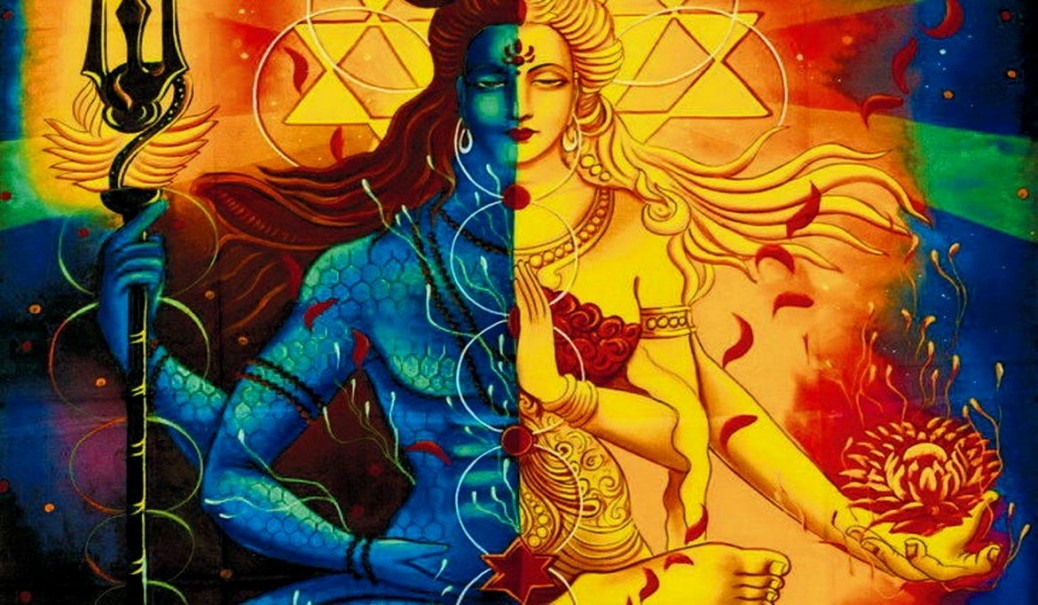VBT – Meditation 96.3
Without Habitations
Mind is very subtle. You can live on a hilltop where there is no one, but if you can see a cottage deep down in the valley you will start talking with that cottage, you will be in a relationship with it – the society has come. You don’t know who lives there, but someone lives there, and that becomes the boundary – you will start dreaming about who lives there and your eyes will search each day to see who lives there. The cottage will become a symbol of humanity. So the sutra says WITHOUT HABITATIONS – even without trees, because it has been known that people who live alone start talking with trees.
They make friendships, they create a dialogue. You cannot understand the difficulty of a man who has gone to be lonely. He wants someone so he will say “Hello” to the tree and “How are you?” And trees are beings. If you are really honest, they will start replying, there will be a response. So you can create a society.
The meaning is this: be in some place and be alert that you don’t create a society again. You may start tending a tree, loving a tree. You may feel that the tree is feeling thirsty so you should bring some water – you have started a relationship and with a relationship you are not alone. So this is the emphasis: move to such a place but have it in your mind that you are not going to create any relationship. Leave all relationships and the world of relationships behind, and be alone there. In the beginning it is going to be very difficult because your mind is created by society. You can leave society but where will you leave the mind? The mind will follow you like a shadow. The mind will haunt you. The mind will start torturing you. Faces will come in your dreams – they will try to pull you. You will try to meditate but thoughts will not cease. You will start thinking of your house, you will start thinking of your wife, of your children. It is human.
And it does not happen to you only – it has happened to Buddha and to Mahavir. It has happened to everyone. Even a Buddha is bound to think of Yashodhara during six long years of loneliness. In the beginning, when the mind was following him, he must have been sitting under a tree pretending to meditate, and Yashodhara must have followed him. He loved that woman. And he must have felt guilty because he had left her – and without saying anything to her. Nowhere is it mentioned that he thought about Yashodhara, but I say he must have thought of her. It is so human; it is so natural.
To think that he never thought again of Yashodhara would be very inhuman and would not be fair to Buddha. Only by and by, after a long struggle, would he have been able to throw off the mind.
But the mind will persist because it is nothing but society – society internalized. Society has entered into you – that is your mind. You can escape from society, the outer reality, but the inner will follow you.
Many times Buddha must have been talking with Yashodhara, with his father, with the small child he left behind. The face of his child must have followed him. It was there in his mind when he left. The night he left he went into Yashodhara’s room, just to see the child for the last time. The child was only one day old. Yashodhara was sleeping and the child was clinging to her breast. He looked at the child. He wanted to take the child into his hands because this was his last opportunity. He had not touched him yet and now he might never return so there would be no meeting. He was leaving the world. He wanted to touch and kiss the child but then he became afraid because if he took the child up in his hands, Yashodhara might be awakened. Then it would be very difficult for him to leave – she would start weeping and crying. He had a human heart. It was beautiful that he thought of it: that if she started crying it would be very difficult for him to leave. Then all that he had created in his mind – that this world was useless and futile – would disappear. He would not be able to see Yashodhara crying. He loved that woman. So he left. He moved out of the room without making any noise.
This man could not leave Yashodhara and the child easily. No one could. When he was begging it was bound to come to his mind – his palace and everything. He was a beggar of his own accord.
The past would persist, it would hammer the mind again and again, “Come back.” Many times he would think, “I have made a mistake.” It is bound to be so. Nowhere is this recorded and sometimes Osho thinks about making a diary about what happened to Buddha’s mind during those six years – a diary about what happened to his mind, what was going on.
Tags: Without Habitations




